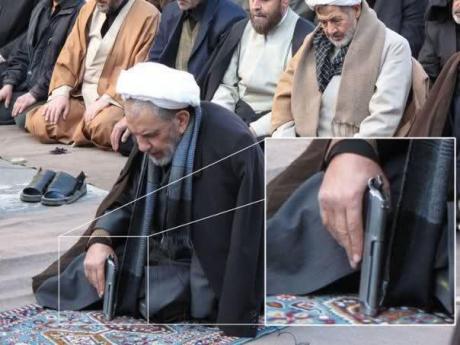
The other day I was browsing around the news, and I came across this particular news item: Iran’s state TV was showing a cleric who was saying “the verdict for someone who does not pay Zakat is death”, and he used the word Qatl, meaning that it is OK to murder him.
Hah, no surprises there, I thought. This is after all the same culture that has turned public hangings into entertainment. I can test my new 12 Mega-pixel smart-phone camera and see how it captures video of a guy hanging from a crane struggling for his last breath while the crowd whistles and cheers. Cool!
But anyway, come to think of it, violence is so prevalent in our culture. You can see this in almost every aspect and facet of life in Iran. People live like animals. Look at the top: The spiritual cleric goes behind the podium and gives a fiery sermon while holding a gun in his hands. Like he has some gold standard to aspire to. Look at the bottom: Is it no surprise that Iranians rank at the top of the world in road accidents? Call it disrespect for other motorists at best, and at worst, road violence. Ah yes, then there’s the ubiquitous “khawr-kosdeh, mageh koori?” to top it off. He’s driving on the sidewalks and he acts like it was his erse padari that we’re trying to take away from. How dare I infringe on his rights! Oh, the nerve.
But honestly, where does this culture of disrespect for others and violence come from? How did it get ingrained in our culture? Hard to say. But one thing’s for sure: The desire to ignore the dictates of both reason and piety is what Hafez evokes so beautifully in his poetry, and where he finds the most powerful response in his countrymen:
ما را به رندی افسانه کردند / پیران جاهل شیخان گمراه / از دست زاهد کردیم توبه / و از فعل عابد استغفرالله
The ignorant sages, the deluded preachers / Have made me a legend among the rend. / We have repented of the ascetic, / And have said, “God forbid”, to the deeds of the pious.
Indeed so have I, Hafez, so have I.






